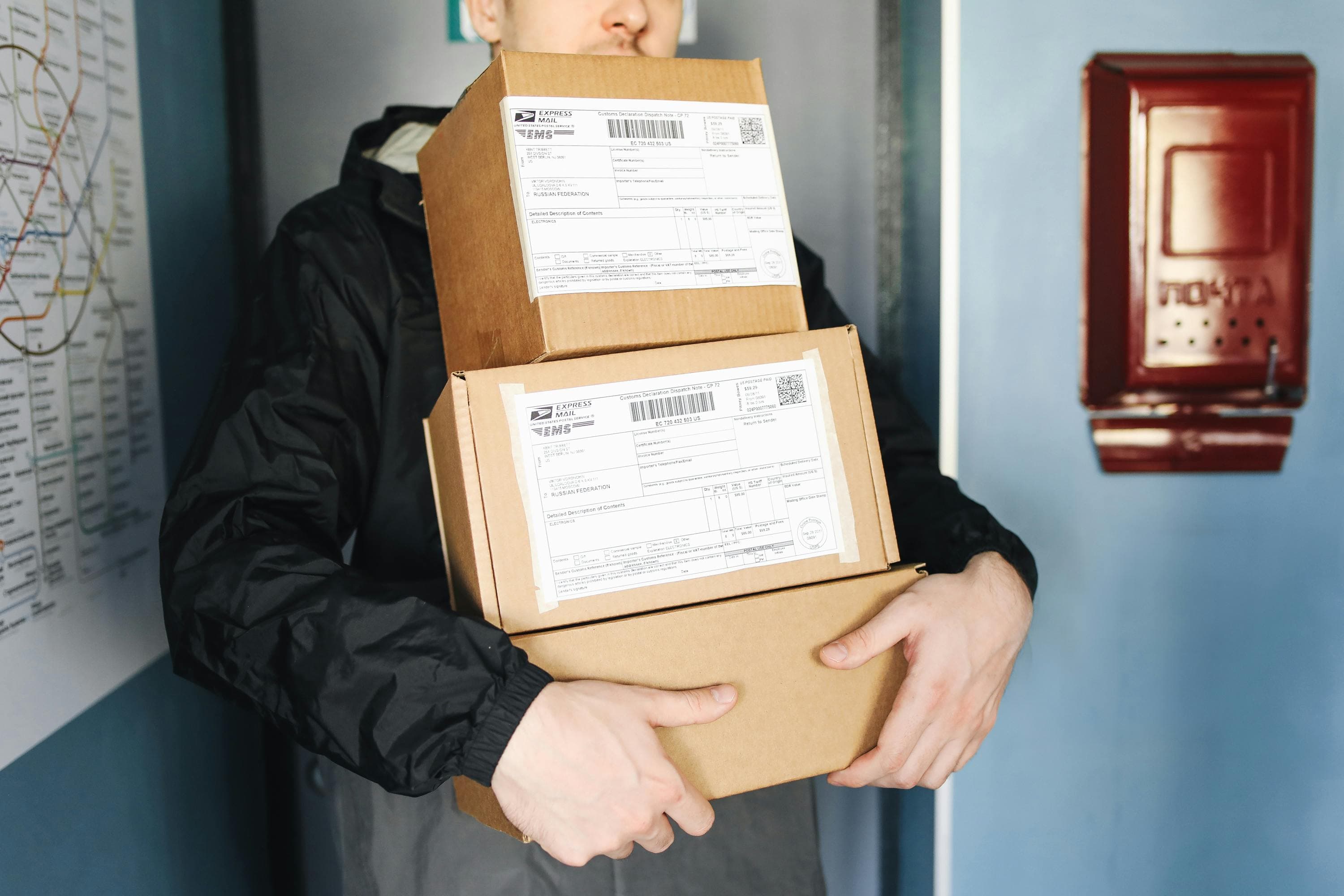Even with today’s advanced tracking systems and reliable carriers, shipping mishaps still happen. A wrong turn at a distribution hub, unexpected weather, or handling errors can turn a routine shipment into a costly problem.
That’s where shipping insurance comes in. It’s more than a safety net; it’s a smart way to manage risk, protect revenue, and provide peace of mind.
In this guide, we’ll break down what shipping insurance is, how coverage differs between major carriers like FedEx, UPS, USPS, and third-party providers like XCover, how to file a claim, and share real-world cases that show why insurance isn’t just a nice-to-have, it’s a must. Read on.
Table of Contents:
- What is Shipping Insurance?
- Comparing Shipping Insurance: FedEx, UPS, USPS, and XCover
- How to File a Shipping Insurance Claim
- Cases Demonstrating the Importance of Shipping Insurance
- Final Thoughts on Shipping Insurance
- Shipping Insurance (FAQs)
What is Shipping Insurance?
Shipping insurance is a financial safeguard designed to protect shippers against losing or damaging their goods during transit. Unlike carrier liability, which provides minimal coverage, shipping insurance offers a more comprehensive safety net, enabling businesses to recoup the total value of their goods in case of mishaps.
It's a critical tool for anyone looking to protect their investment from the uncertainties of shipping and handling, ranging from multicarrier purchases to the single (yet very important) item a user might need to deliver.
Comparing Shipping Insurance: FedEx, UPS, USPS, and XCover
Understanding which provider fits your needs depends on the shipment’s value, destination, and urgency. Below is a breakdown of each option.
- FedEx: FedEx offers a declared value coverage service. The cost for this coverage starts at a base rate. It increases incrementally based on the declared value of the package, providing flexibility and control over insurance costs.
- UPS: Similar to FedEx, UPS offers declared value coverage for shipments. The first $100 of coverage is included at no extra cost, but beyond that, shippers can purchase additional insurance to cover the total value of their goods.
- USPS: The United States Postal Service offers insurance coverage for most of its shipping options. This insurance is built into the cost of certain shipping services, like Priority Mail, which includes up to $50 of insurance with the cost of postage. Additional insurance can be purchased for higher-value items.
- XCover: XCover distinguishes itself by offering a modern, flexible approach to shipping insurance. Their customizable insurance coverage caters to businesses of all sizes with a model that integrates seamlessly across different carriers. It protects shipments against loss, damage, and theft.
Shipping Insurance Comparative Table
| Provider | Free Coverage | Additional Coverage Cost | Max Coverage Limit | Claim Process |
|---|---|---|---|---|
| FedEx | $100 | $4.20 for $100.01–$300; $1.40 per $100 after that | Most services: up to $50,000With contract: up to $100,000 | Moderate |
| UPS | $100 | $3.45 for $100.01–$300; $1.15 per $100 after that | Up to $50,000 for most services | Efficient |
| USPS | $100 (Priority Mail and Ground Advantage) | Based on declared value, starting at $2.50 | Up to $5,000 for most services | Slower |
| XCover | N/A | 1.25% (domestic); 1.5% (international) of declared value | Matches item’s full purchase value | Efficient |
How to File a Shipping Insurance Claim
Each carrier has a different claims process and documentation requirements. Here’s a quick overview:
- FedEx: Log in to your FedEx account and submit claims within 21 days of delivery. Needed: tracking number and proof of value.
- UPS: Log into your UPS account and file a claim within 60 days of delivery. Then, you will be asked to provide details about your order, such as tracking number, proof of value, and damage documentation.
- USPS: Claims can be submitted online or filed at a Post Office within 60 days of delivery. You must include the mailing receipt, proof of value, and damage evidence.
- XCover: You'll need an account to file an insurance claim. The claim must be submitted online within 30 days of delivery. Depending on the nature and the value of your claim, the XCover team will ask you to provide: a brief description of what happened and any damage evidence.
Cases Demonstrating the Importance of Shipping Insurance
Insuring High-Value Items in the Electronics Sector
A company shipping $250,000 worth of electronic devices experienced a complete loss due to a severe flash flood en route to Oklahoma. Because the package was insured through a third-party provider, the company recovered the full amount in under two weeks.
Overcoming the Challenges of International Shipments
In a world where fashion evolves daily, Global Textiles Ltd. specializes in exporting luxury fabrics and custom garments from India to boutiques across Europe and North America. Aware of the risks tied to international shipping, the company established a policy to ensure every package.
This decision paid off when several packages went missing during a shipment to a high-profile client in France. Thanks to shipping insurance, Global Textiles Ltd. was able to quickly reimburse the client and resend the goods, avoiding financial loss and preserving a valuable relationship.
Final Thoughts on Shipping Insurance
Shipping insurance isn’t just for enterprise-level operations. If your business handles fragile or high-value shipments, insurance should be part of your cost strategy. It reduces financial risk, enhances your customer experience, and ensures you're not left scrambling when things go wrong.
Remember that with Airpals multi-carrier shipping platform, you can streamline your shipping process and access insurance coverage directly through our dashboard. Compare rates, choose the best carrier, and ensure your packages are protected in just a few clicks, all in one place. It's fast, reliable, and built to support businesses that ship smarter.

Shipping Insurance (FAQs)
Is shipping insurance worth it?
Yes. For businesses shipping valuable, fragile, or high-volume packages, shipping insurance is a cost-effective way to protect against loss or damage during transit.
What is shipping insurance?
Shipping insurance reimburses the shipper if a package is lost, stolen, or damaged in transit, based on the value declared when the shipment was insured.
Why should I purchase shipping insurance?
To avoid unexpected financial losses. It’s especially important for high-value or fragile items where the cost of replacement could impact your bottom line.
How much does shipping insurance cost?
It depends on the carrier and the declared value. Rates usually start with a base fee and increase incrementally based on the item’s value.
Do I need shipping insurance?
If the item is valuable or irreplaceable, insurance is highly recommended. For lower-cost shipments, it may be optional but still helpful.
How do I know if my package is eligible for shipping insurance?
Most legally shippable items are eligible. Check with the carrier, as each has its own list of restricted or excluded items.
Does FedEx offer insurance?
FedEx includes up to $100 of declared value coverage for free. Higher-value shipments require purchasing additional coverage.
What's the difference between carrier liability and shipping insurance?
Carrier liability offers limited default protection. Shipping insurance can be purchased to cover the full declared value, offering broader protection.
How do I file a claim if my package is lost or damaged?
Contact the carrier or insurance provider and submit proof of value and documentation of the loss or damage. Each has specific timelines and requirements.
How long does it take to resolve a shipping insurance claim?
Resolution time varies by provider but typically ranges from a few days to several weeks. Submitting all documents quickly can speed up the process.



